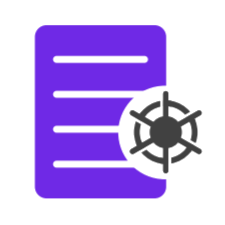We use Salesforce to track all of our customers, from the time they’re prospects through their delivery at LifeSpring. By storing our data in the cloud, we’re able to monitor our customer pipeline in real-time and allocate resources to efficiently meet their needs
- Tricia Morente – Head Strategy and Marketing, LifeSpring Hospitals Private Ltd
Bigworks Salesforce Implementation helps LifeSpring deliver a sustainable model for low-cost maternity care
Of the many Salesforce customer success stories of Bigworks, LifeSpring Hospitals is a fitting example for our Salesforce implementation services. LifeSpring Hospitals Pvt Ltd is a joint venture between HLL Lifecare Limited (formerly Hindustan Latex Limited) and US nonprofit Acumen Fund, committed to providing affordable healthcare to low-income women in India. More than 100,000 women lose their lives to pregnancy-related complications every year and many suffer severe infections again. LifeSpring reaches out to the bottom 60% female population – the most impoverished who would normally not have the means to afford maternity care – offering them healthcare services for around one-sixth of the standard market price. In this way, LifeSpring saves lives daily. Let’s read more about the Salesforce customer success in this case.
Salesforce Customer Success
Identifying the tasks and challenges
To understand the Salesforce customer success of LifeSpring, let’s first look at the challenges the hospital faced before Salesforce implementation. Since LifeSpring Hospitals is built on a sustainable model, its expenditure on software systems is not too high. And recording information of up to 150 births per month for every hospital branch is a challenge and is also prone to inaccuracy. There was also a need to track the pregnancies of local, low-income women from the antenatal stage through delivery to post-natal care.
For LifeSpring, it was important to educate women on the benefits of antenatal care and encourage them to increase the number of doctor visits before pregnancy. Over 180 processes were to be standardized across the chain, as more hospitals were being built to reach their growth target.
They quickly identified that there’s a need for a CRM that could help them access their data from anywhere, which is highly flexible and customizable to accommodate both in-hospital and community outreach programs.
Working on the way out
Salesforce CRM was implemented by salesforce.com partner, Bigworks Technologies in 2007 for 5 users across LifeSpring’s corporate office and hospitals. While the Cloud solution can scale quickly and cost-effectively across multiple regions, it could also be customized to emulate outreach workers’ notebooks as closely as possible for familiarity and ease of use. With many customizations, this got among the successful Salesforce case studies.
The extensive customizations carried out to map Lifespring’s business processes included:
- Leads renamed to Prospects (expectant mothers as prospective LifeSpring customers)
- Accounts (qualified leads) renamed to Customers
- Opportunities (sales and pending sales) to track and monitor pregnancies, customized to the first trimester, second trimester, etc.
- Close date in Opportunities changed to EDD Built-in automatic workflows and triggers around each pregnancy. For example, first-month visit, second-month visit, etc.
- LifeSpring’s service to customers was added to pregnancy object for capturing services availed, revenue generated, and details of the entire LifeSpring experience
- Products were renamed to services with birth register and post-delivery, it’s completely customized objects
- Formulas fields built-in for socio-economic rating, based on EDD to automatically reveal the month of pregnancy
- Automatic workflows and triggers automate the reminder process for periodic checks and visits
Outcomes and favorable results
The Bigworks Salesforce implementation process helped LifeSpring in multiple ways. LifeSpring teams can share information easily in the cloud for complete end-to-end visibility of each customer case. They’re also able to persuade women to come for antenatal check-ups by checking when their last visit to the hospital was, in addition to carrying out reminder calls for their check-ups and even identifying, targeting, and educating key family decision makers easily. Apart from that, they could track their customer through antenatal care to post-delivery, including the baby’s vaccine schedule.
Salesforce CRM made light work of coordinating LifeSpring’s Health Camp community education sessions and ‘Book Your Bed’ advance inpatient bed booking promotion. Its reporting was also instrumental in revealing community groups most in need of attention to raising survival rates, i.e. those who have not sought care before 2nd trimester. Hence this remains as an example for Salesforce customer success stories.
“Salesforce CRM has taken us from a point where we knew little about the women we serve, to the point where we now know have a holistic view of our customers – where they delivered before LifeSpring, who the key decision-maker in their family is, and what they care about when choosing a hospital. This enables us to reach out individually and better educate women about antenatal care and safe delivery,” says Tricia Morente, Head Strategy and Marketing, LifeSpring Hospitals Private Ltd






